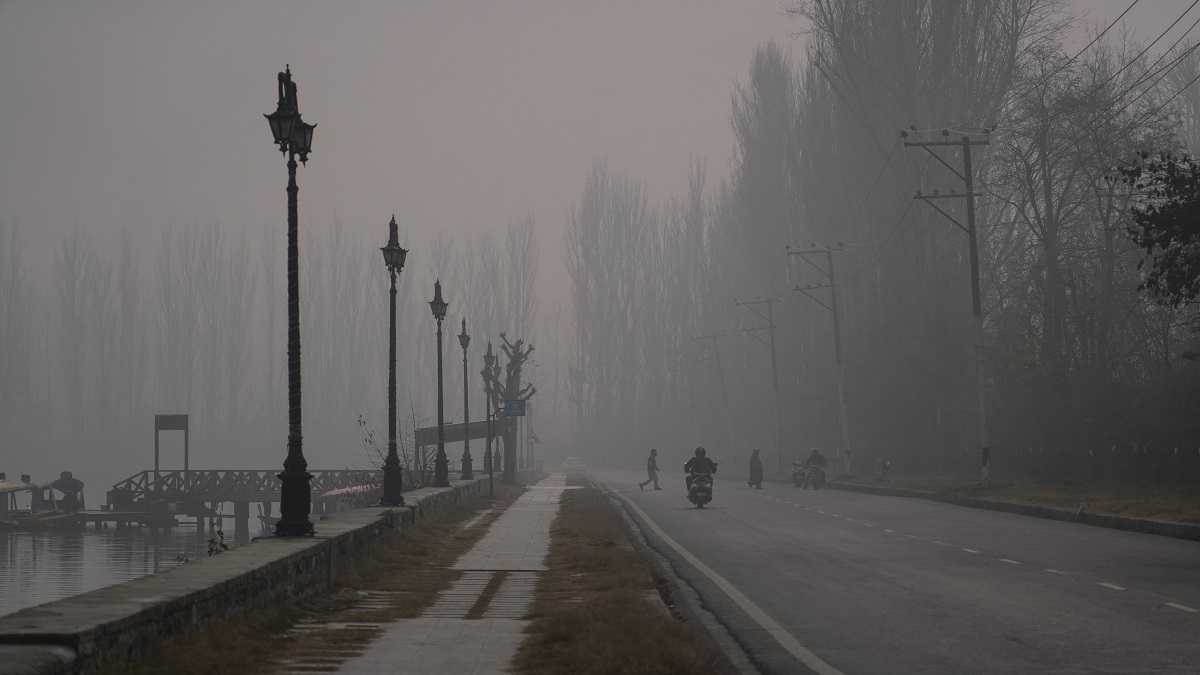

Srinagar: Srinagar recorded the season’s coldest night on Tuesday as a cold wave sweeps through Kashmir. Mercury dropped to minus 5.3 degrees Celsius in the summer capital of Jammu and Kashmir, days after recording a low of minus 4.8 degrees Celsius on Monday.
An official of the Meteorological (MeT) Department here said, “With minus 5.3 degrees Celsius as the minimum temperature, Srinagar recorded the coldest night of the season so far.
Extreme cold temperatures can impact daily life, ranging from the challenges of maintaining essential services such as water supplies to the need for adequate heating and insulation to combat the cold. Furthermore, such extremes of temperature can affect agriculture, livestock and local ecosystems.
The temperature rose by several degrees on Tuesday, although the minimum temperature remains below freezing point. Pahalgam in south Kashmir, which is also the base camp for the Amarnath Yatra, recorded a minimum temperature of minus 1.5 degrees Celsius.
The resort town of Gulmarg recorded minus 3.5 degrees Celsius while Qazigund recorded a low of minus 2.6 degrees Celsius. Temperatures hovered around minus 2 degrees Celsius in Kokernag and Kupwara.
The weather office has said that the region will experience dry but generally cloudy weather till December 16, days before the beginning of ‘Chilla-i-Kalan’ — the 40-day harshest winter period when the temperatures drop to their lowest.
The harsh winter period also sees water bodies in Kashmir, including the iconic Dal Lake, freeze and even water in pipelines turns to ice. Snowfall become frequent with higher reaches receiving heavy snow.
The cold wave in Kashmir is divided in three phases. The ‘Chillai-Kalan’ begins on December 21 and ends on January 30. It is followed by a 20-day ‘Chillai-Khurd’ or small cold and a 10-day ‘Chillai-Bachha’ or baby cold after it.
The region has been hit by a cold wave, with temperatures dropping below the freezing point, resulting in dense fog and hampering operations, especially flight operations. Morning flights are being delayed and passengers are struggling with poor visibility. The severe weather conditions have also raised concerns about school operations, leading to calls for primary classes to be closed.
According to the weather forecast, shallow to moderate fog will continue for some time, indicating a prolonged period of weather challenges. There is a need for constant monitoring and adaptation due to the ongoing cold wave and dense fog. The resilience and adaptability of the community will be crucial in effectively managing the impacts of the cold wave and dense fog.